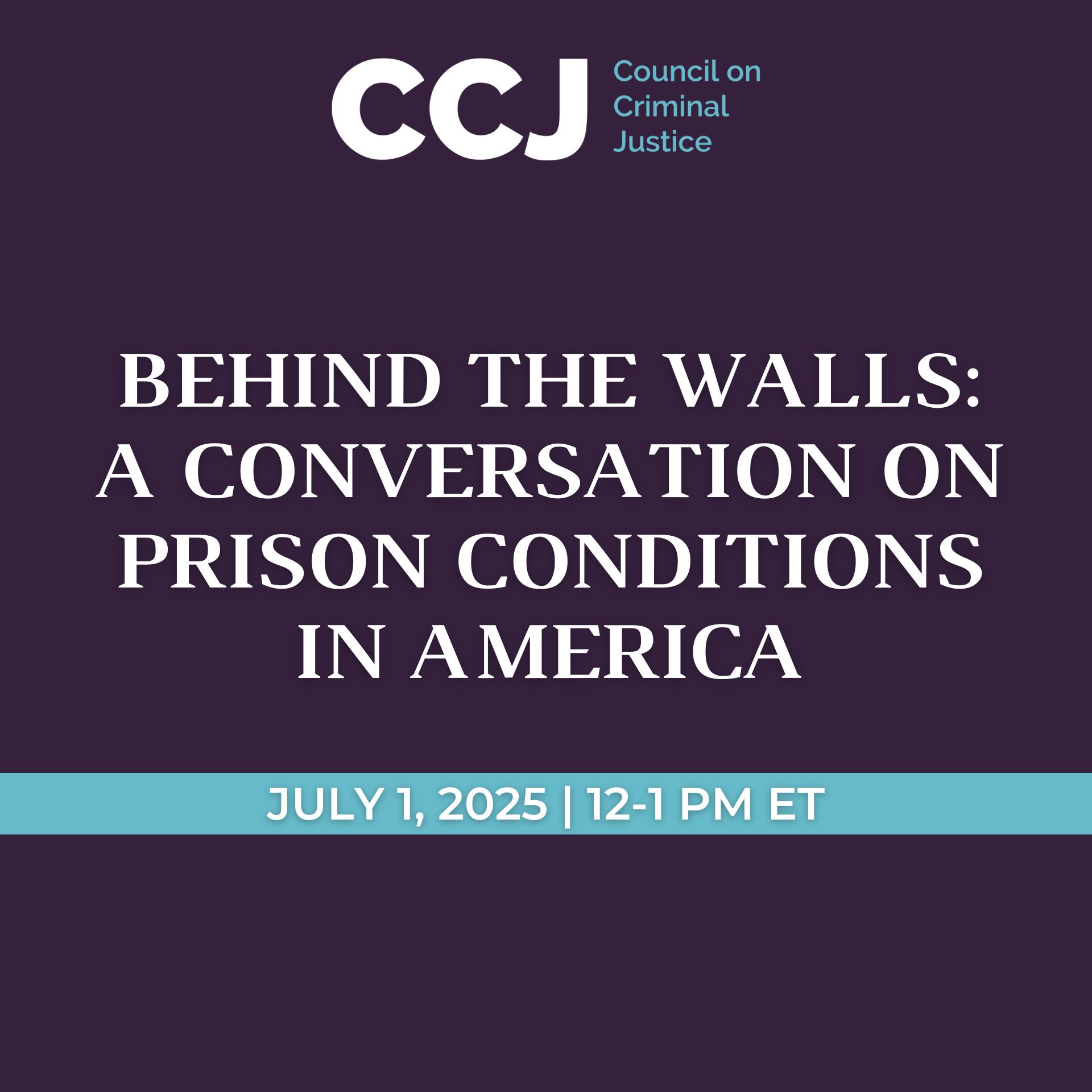Led by Former U.S. AGs Loretta Lynch and Alberto Gonzales, Diverse Panel Also Says Corrections Staff, Incarcerated People Should be Prioritized for Coronavirus Vaccine
5:00 a.m. ET, December 14, 2020
Contact: Jenifer Warren
jwarren@counciloncj.org
916-217-0780
WASHINGTON, D.C. – The National Commission on COVID-19 and Criminal Justice today issued a sweeping set of recommendations urging policymakers to reduce the density of the justice system to better balance public health and public safety – and called for correctional staff and incarcerated people to receive early access to the coronavirus vaccine.
Led by former U.S. Attorneys General Loretta Lynch and Alberto Gonzales, the independent Commission established by the Council on Criminal Justice (CCJ) said the population density of correctional facilities, along with a lack of preparedness and guidance for leaders across the criminal justice system, thwarted efforts to control the coronavirus, leading to wide variance in infection and death rates for incarcerated people and staff, among other consequences.
To increase the resiliency, fairness and effectiveness of a system that includes 2.1 million people behind bars and another 4.4 million on probation or parole, leaders must thin incarcerated populations to limit contact and maximize distance between individuals, the Commission said.
Key recommendations in the Commission’s report, Experience to Action: Reshaping Criminal Justice After COVID-19, include:
- Creating effective “safety valve” release mechanisms for medically vulnerable people in prison.
- Diverting people with mental health and substance use disorders away from custody and into public health alternatives.
- Using citations in lieu of arrest for incidents that do not pose a threat to public safety.
- Developing common standards for crisis response, to prevent the patchwork of measures that characterized states’ management of COVID-19.
- Elevating community-based organizations as co-equal players in the criminal justice system, and ensuring their consistent funding.
- Embracing innovation, while ensuring new technologies expand access to justice, protect individual rights, and reduce racial and ethnic disparities.
In recommending that staff and people incarcerated in the nation’s prisons and jails receive priority consideration for vaccines, the Commission noted the outsized risk COVID-19 and other infectious diseases pose for individuals behind bars and those who oversee them. The Commission recommends including such individuals in “Phase 1b” of vaccine distribution along with court and community corrections officials in frequent contact with the public and other essential system workers.
“Fundamental changes often follow a crisis, so as we work to improve the fairness and effectiveness of our criminal justice system, this is the time for us to be bold in our thinking and actions,” said Commission Co-Chair Gonzales, who served as Attorney General under President George W. Bush. “Let’s take this moment to make transformative, enduring improvements for the benefit of all Americans.”
“COVID-19 has tested all of us, and has left a painful imprint in all corners of the criminal justice system,” said Commission Co-Chair Lynch, who served as Attorney General under President Barack Obama. “It is our collective responsibility to not just tame this pandemic, but to use knowledge acquired through our journey to remedy inequities and other problems that have plagued the system for far too long.”
Today’s report follows interim recommendations issued by the Commission in October that focused on immediate steps to control the spread of the virus. Both reports rely on a series of research reports produced for the Commission, the experience and expertise of its 14 diverse members, and oral and written testimony from a broad spectrum of criminal justice organizations, researchers, advocates, and others, including people recently released from prison.
CCJ Senior Fellow Thomas Abt, the Commission’s director, said the recent surge in COVID-19 cases and deaths in the correctional system underscores the importance of the commissioners’ work. More than 220,000 incarcerated individuals and 48,000 correctional staff have tested positive for the coronavirus, while more than 1,500 of those individuals and more than 90 staff have died. Hundreds of thousands of others in law enforcement, the courts, and organizations serving justice-involved people in the community have also contracted the virus, leading to hundreds of lives lost.
“As the pandemic enters its tenth month, rates of COVID-19 infections and deaths in prisons and jails continue to rise – and substantially outpace rates for the general population,” Abt said. “This sobering reality is reflected in the Commission’s recommendations, which offer a roadmap forward toward a system better equipped to balance public health and public safety.”
Launched in July, the Commission includes a broadly diverse range of perspectives and experience – justice system leaders, a mayor, advocates, a leading researcher, a formerly incarcerated individual, and a top public health specialist.
About the Council on Criminal Justice
The Council is a nonpartisan membership organization and think tank that advances understanding of the criminal justice policy challenges facing the nation and builds consensus for solutions based on facts, evidence, and fundamental principles of justice.
For more information on the Council and the Commission, visit https://counciloncj.org/



